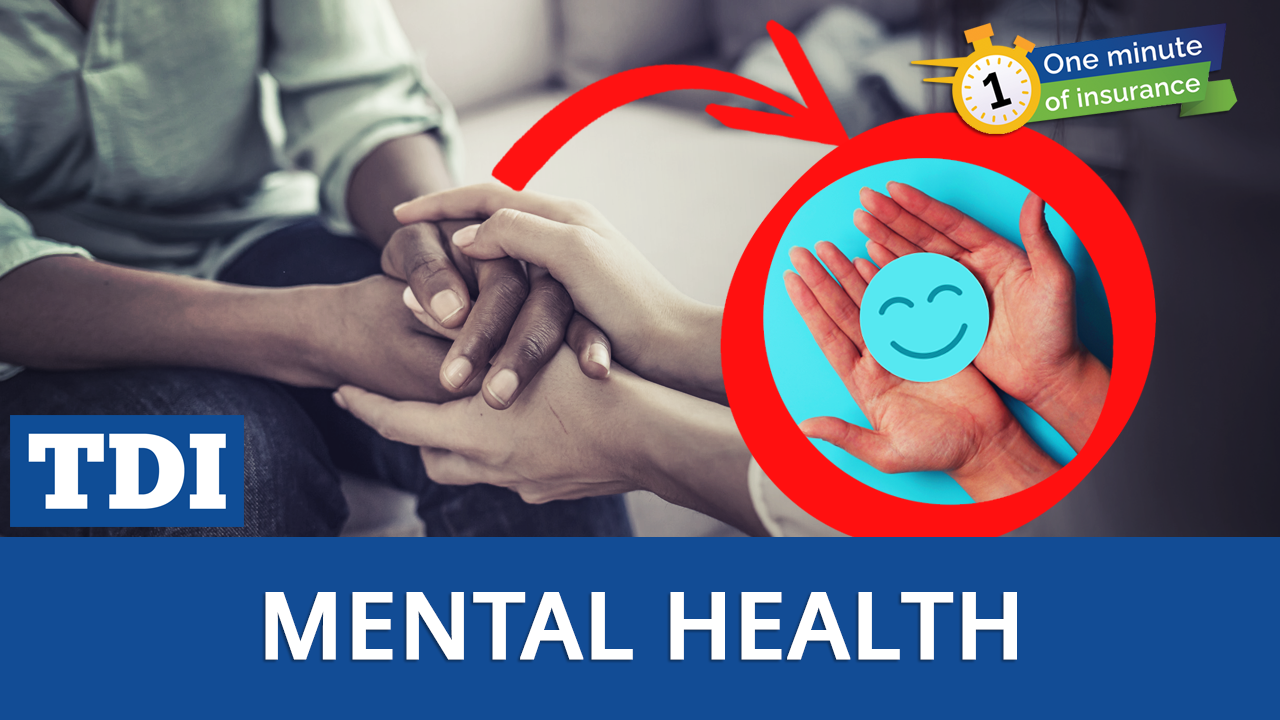If you have a fever or body aches, you’d go to the doctor. If you think you’ve broken a bone or have heart flutters, you might go to the ER.
Are you taking the same care of your mental health? Or are you worried about the cost or don’t know where you’d go for help?
Texas and the federal government have laws to protect consumers and guarantee that health plans give you the same level of mental health benefits as your medical benefits, such as the number of office visits. This is known as “mental health parity.”
The laws require mental health parity for:
- Payment limits. Some plans have limits on how much it will pay over your lifetime or over a year. If your plan has a limit for medical benefits, the limit should be the same for mental health benefits.
- Out of pocket expenses. Your plan should have the same copayments, deductibles, or coinsurance for mental health and medical benefits.
- Provider availability. Your plan should have a network of mental health providers and facilities, like it does for medical health.
- Treatment limits. Your plan shouldn’t limit the number of visits for mental health treatment if it doesn’t for medical health.
All of that may seem complicated.
But basically, your health coverage should have a mind-body connection. And that connection should be all the time, not just when there’s an emergency.
Don’t delay or deny yourself care because you don’t think your plan covers it. Contact your health plan first for information and a list of providers in their network.
The Texas Department of Insurance is here to help. If you have insurance questions or want to file a complaint, call our Help Line at 800-252-3439.



